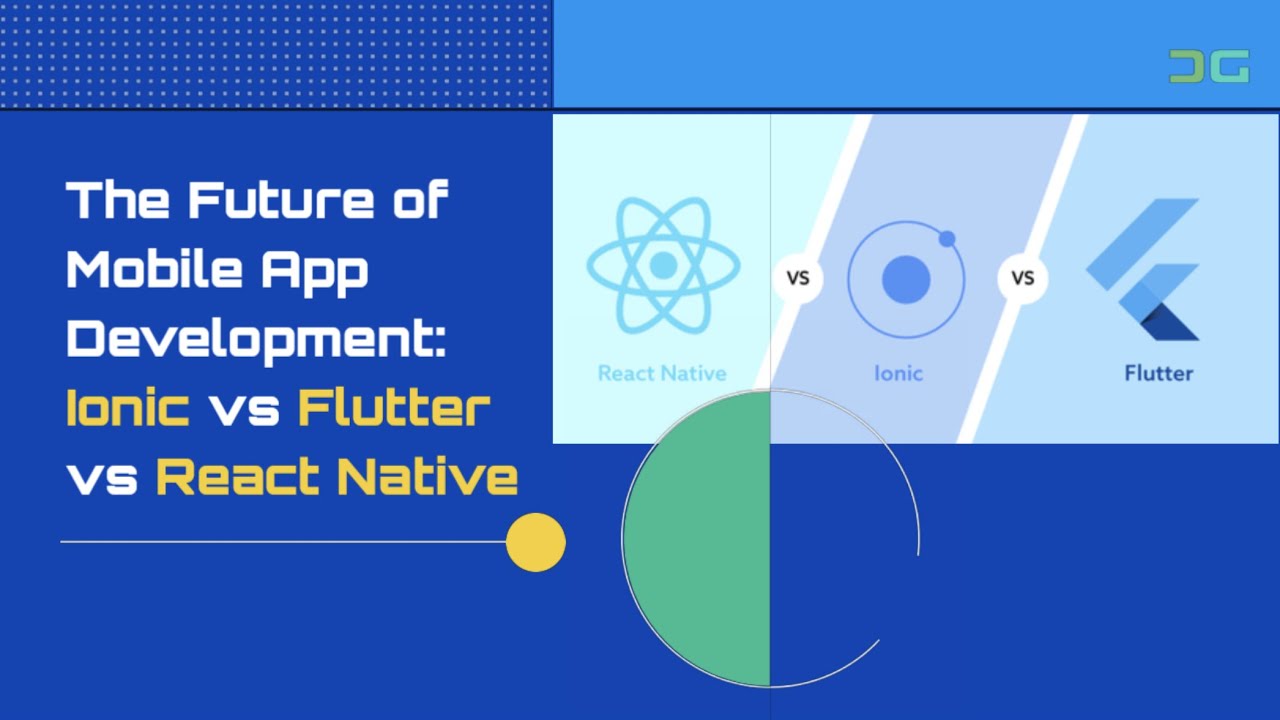
Related blog article at https://www.devengoratela.com/post/the-future-of-mobile-app-development-ionic-vs-flutter-vs-react-native
The world of mobile app development is constantly evolving, and new technologies and frameworks are constantly emerging. Two popular choices for building mobile apps are Ionic, Flutter, and React Native. Each of these frameworks has its own set of pros and cons, so it’s important to understand the differences before deciding which one to use for your next project.
Ionic is an open-source framework that allows developers to build cross-platform mobile apps using web technologies such as HTML, CSS, and JavaScript. Ionic uses a library of pre-built UI components and tools to help developers build their apps faster and more efficiently. Additionally, Ionic allows for easy integration with other web technologies such as Angular and React. One of the main advantages of using Ionic is that it has a large community of developers and a vast ecosystem of plugins and extensions. This means that developers can easily find pre-built components and tools to help them build their apps faster and more efficiently.
Flutter, on the other hand, is a newer framework created by Google that uses the Dart programming language. It allows developers to build high-performance, cross-platform mobile apps with a reactive programming model. One of the main advantages of using Flutter is its ability to create beautiful, custom animations and UI elements. Additionally, Flutter has a fast development cycle, which means that developers can see the changes they make in real-time as they build their apps. Flutter also allows for easy integration with other technologies such as Firebase and Google Maps.
React Native is another popular framework that allows developers to build cross-platform mobile apps using JavaScript. It is based on Facebook’s React library, which is widely used for building web apps. One of the main advantages of using React Native is its ability to reuse code between web and mobile apps. Additionally, React Native has a large community of developers and a vast ecosystem of plugins and extensions. React Native also allows for easy integration with other technologies such as Firebase and GraphQL.
When deciding which framework to use, it’s important to consider the specific requirements of your project. If you are looking for a framework that allows for easy integration with web technologies and has a large community of developers, Ionic may be the best choice. If you want to create beautiful animations and UI elements, Flutter may be the way to go. And if you want to reuse code between web and mobile apps and have a large community, React Native is a great choice.
In conclusion, Ionic, Flutter, and React Native are all great options for building mobile apps, each with its own set of advantages and disadvantages. The best choice will depend on the specific requirements of your project and your own development preferences. As the mobile app development industry is continuously growing and evolving, it’s important to keep track of the latest trends and advancements in the field and make an informed decision on which framework to use for your next project.
Video Source



